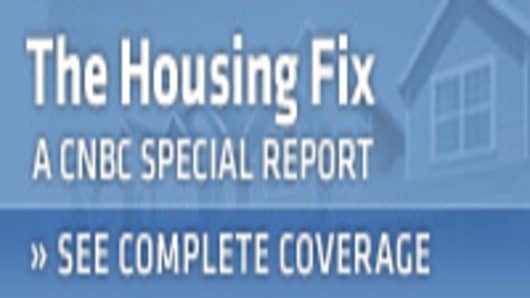A housing sector without Fannie Mae and Freddie Mac is a possibility, Edward J. DeMarco, director of Federal Housing Finance Agency (FHFA), told CNBC Thursday.
Demarco said another future scenario might involve Fannie and Freddie remaining in business, but without dependence on the federal government.
But, he cautioned, success could happen only if an infrastructure is in place that allows private firms to re-enter what is a $10 trillion mortgage market.
Either scenario is possible, said DeMarco, but both “need appropriate a transition. Our housing market is still quite fragile.”



